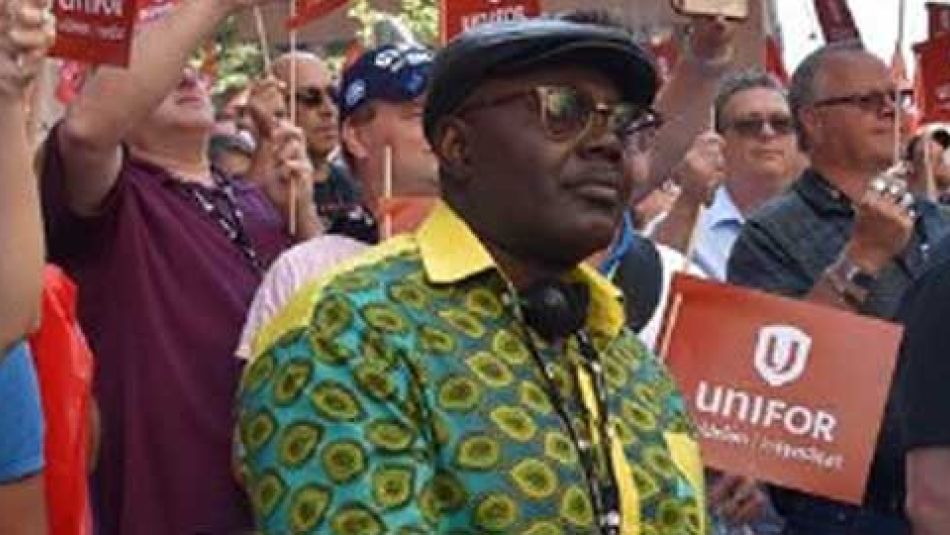
Share
Representation matters.
Lionel Ngoket feels a strong sense of pride knowing he is propelling racial change after he was elected a director member to Unifor’s Quebec Regional Council Executive Board on April 28, becoming the first Black person in the role in the union’s history.
It’s a challenge and responsibility he’s up for.
“I hope it will open doors for others by showing what you can achieve when you put in the necessary effort,” said Ngoket this week.
“Unifor can do more to help Black, Aboriginal and racialized people access leadership positions within the organization by taking action to ensure equity and full representation of the diverse equity-seeking communities that compose our union.”
Ngoket is a founding member of Local 175-C -- which represents workers from VOPAK, a multinational oil company in Quebec – and later merged with other locals to form Local 170-Q, where he remains president.
He said he’s also been a frontline activist for more than a decade, organizing the entire workforce.
“Confronted with a difficult employer, I had to manage a general strike with my brothers in 2019, which resulted in exceptional gains for workers,” he said.
Ngoket is also an executive member elected to Quebec Council’s AWOC standing committee, a trainer with Unifor’s Education Department and member of Unifor Quebec’s energy caucus.
In his director role, Ngoket wants to give people the opportunity to develop leadership experience through committees, involve members in the executive committees of local unions and provide them with training. He also wants to identify different types of leadership and help members develop them and create a monitoring structure for these issues at the local level, with an obligation to achieve results.
“The problems facing minorities cannot be solved by the majority,” he said. “What is required is a strong will, clear decision-making and follow-up by our current leadership, based on a specific timetable.”
He said he is committed to represent all members and through his personal experience and is sending the message reaching leadership positions is possible. He knows he’s not going to be the last BIPOC member in a leadership role.
“My ultimate goal is to help people see and understand that Unifor is a great union for everyone,” he said.
Christine Maclin, Unifor’s Human Rights Director, said it’s extremely important Unifor continues to promote equity-seeking members into leadership roles throughout the union.
“As we are in the midst of a movement that is looking internally at companies and organizations around representation pertaining to Black, Indigenous and people of colour,” she said.
“Unifor recognizes the union’s struggle for justice, respect, and dignity cannot be limited to only fighting the bad boss or pushing the government for legislative changes. It must also include taking a look internally, within our union, to consider how members are included, represented and most importantly, how we can create opportunities for equity representation of our membership.”
Unifor Quebec Director Renaud Gagné said Ngoket’s new leadership role can inspire other workers of colour to follow his example and get involved in the union.
“He is a committed labour activist who will be a great asset on the Quebec Council’s executive team,” he said.
Ngoket said it’s key to increase organizing power and to reach out to different communities and make them aware of all the benefits that a union like Unifor can offer.
“An inclusive union is much stronger because it reflects the diverse human reality of society,” he said.
“It does so by ensuring competent representation of all members and leading by example.”



